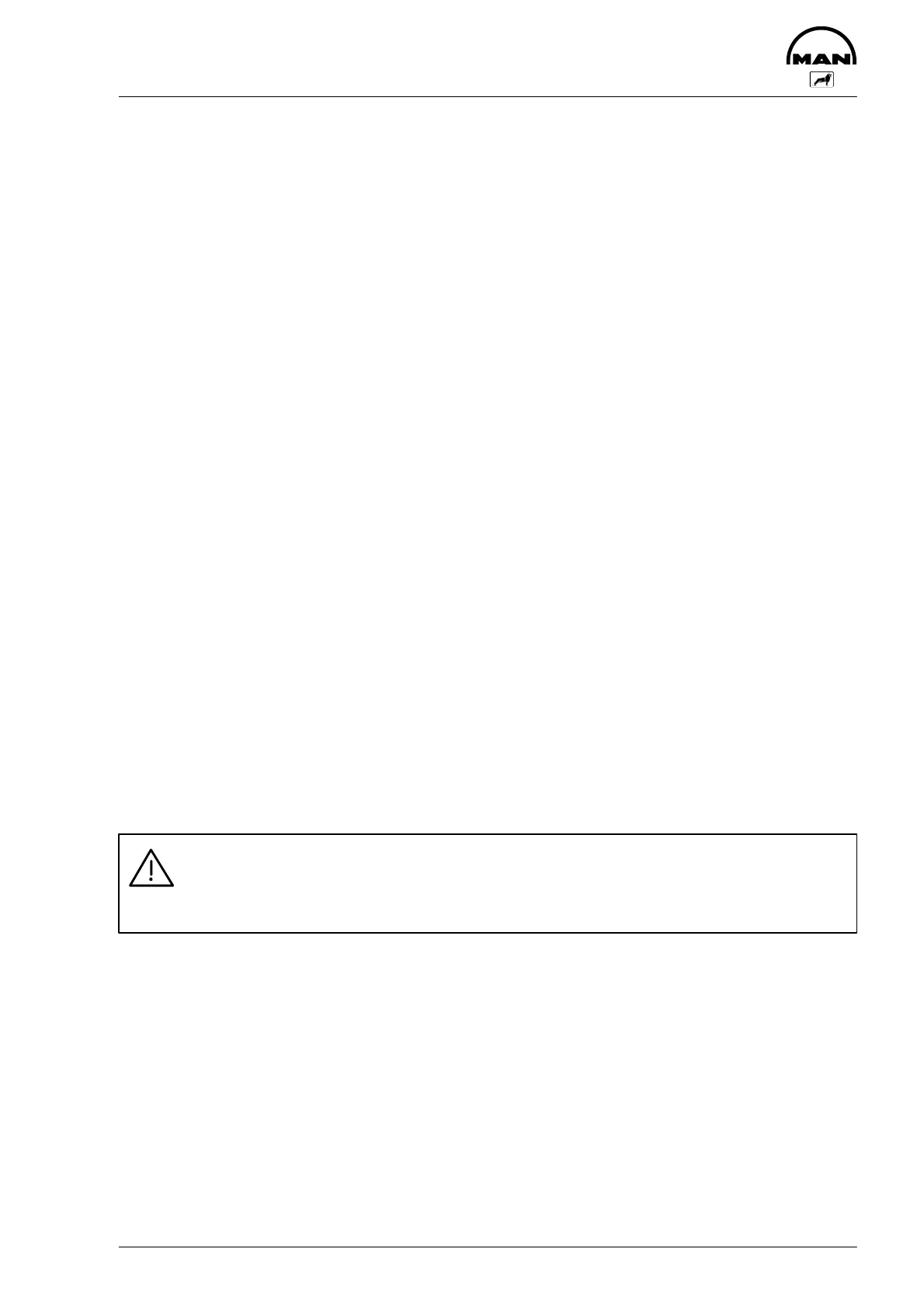Turbocharger, trouble shooting
71
When there is unusual intake or exhaust noise
– Check the intake and exhaust system in the area of the charger group.
– Defective gaskets can lead you to think the turbocharger is defective. Replace them.
– If there are still unusual noises, check the bearing clearance.
– Turbochargers in good working order do not make any excessive noise.
Oil accumulation in charge-air lines and the intercooler
A small amount of oil collects in the charge-air system. This is supposed to happen, is caused by oil mist,
and is desirable. The oil mist is required to lubricate the intake valve seats.
If more oil accumulates than usual, that is, if oil pockets develop in the lower air box of the intercooler, for
example, this can lead to oil disintegration or uncontrolled raising of the engine speed when the oil is sepa-
rated. In such cases, you must eliminate the cause.
Possible causes:
– The engine is overfilled with oil.
– Check whether the correct dipstick and guide pipe combination is installed.
– The engine oil used is unsuitable (see publication ”Fuels, Lubricants, Coolants for Industrial and Marine
Diesel Engines”).
– The engine is being run on impermissibly steep inclines.
– The crankcase pressure is to high. This may be caused by a defective oil separator valve or piston ring
wear.
Compressor carbonization
This can occur when the charge-air temperature is permanently high, for example when the engine is
constantly run at full load.
Carbonization lowers the charging pressure but does not negatively affect performance or acceleration.
Carbonization can lead to increased exhaust clouding.
If exhaust emissions test values are no longer met:
– Remove the compressor housing, being careful not to let it get jammed. If it gets jammed, the compres-
sor wheel blades may get damaged or bent, and the resultant imbalance can ruin the turbocharger.
– Remove carbonization in the compressor housing with a suitable cleaning agent.
Caution:
Never spray in cleaning agent while the engine is running.
– ineffective
– dangerous
In problem cases, use oil types that are less likely to lead to compressor carbonisation (see publication
”Fuels, Lubricants, Coolants for Industrial and Marine Diesel Engines”)

